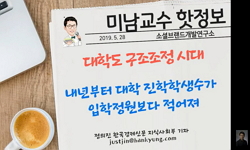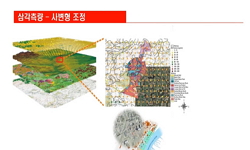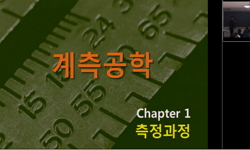Given a firm’s limited coordination capacity, the balance between the initiation of new search and the termination of old search appears critical to its long-term survival. But the current research on technological innovation and organizational lear...
http://chineseinput.net/에서 pinyin(병음)방식으로 중국어를 변환할 수 있습니다.
변환된 중국어를 복사하여 사용하시면 됩니다.
- 中文 을 입력하시려면 zhongwen을 입력하시고 space를누르시면됩니다.
- 北京 을 입력하시려면 beijing을 입력하시고 space를 누르시면 됩니다.
https://www.riss.kr/link?id=A104583251
- 저자
- 발행기관
- 학술지명
- 권호사항
-
발행연도
2010
-
작성언어
English
-
주제어
조정 ; 탐색비용 ; 탐색규모 ; Coordination ; Search Cost ; Search Scale
-
등재정보
KCI등재
-
자료형태
학술저널
- 발행기관 URL
-
수록면
1-30(30쪽)
-
KCI 피인용횟수
3
- 제공처
-
0
상세조회 -
0
다운로드
부가정보
다국어 초록 (Multilingual Abstract)
Given a firm’s limited coordination capacity, the balance between the initiation of new search and the termination of old search appears critical to its long-term survival. But the current research on technological innovation and organizational learning has exclusively concerned how to initiate a new search and neglected the need for the termination. This study aims to uncovering the balance between the initiation and termination of searches. Using patent applications in the telecommunications equipment industry from 1991 to 1999, this study suggests that the change in a firm’s search scale is related to its human resources capabilities, prior knowledge, and organizational age.
참고문헌 (Reference)
1 Starbuck, W. H., "Unlearning ineffective or obsolete technologies" Leonard N. Stern School of Business 1996
2 Henderson, R., "Underinvestment and incompetence as responses to radical innovation: Evidence from the photolithographic alignment equipment industry" 24 : 248-270, 1993
3 Winter, S. G., "The satisficing principle in capability learning" 21 : 981-996, 2000
4 Gibson, C. B., "The antecedents, consequences and mediating role of organizational ambidexterity" 47 : 209-226, 2004
5 Christensen, C. M., "The Innovator’s Dilemma: When new technologies cause great firms to fail" Harvard Business School Press 1997
6 Jaffe, A. B., "Technological opportunity and spillovers of R&D: Evidence from firms’ patents, profits, and market value" 76 : 984-1001, 1986
7 Tushman, M., "Technological discontinuities and organizational environments" 31 : 439-465, 1986
8 Von Hippel, E., "Sticky information and the locus of problem solving: Implications for innovation" 40 : 429-439, 1994
9 Tushman, M., "Special boundary roles in the innovation process" 22 : 587-605, 1977
10 Katila, R., "Something old, something new: A longitudinal study of search behavior and new product introduction" 2002
1 Starbuck, W. H., "Unlearning ineffective or obsolete technologies" Leonard N. Stern School of Business 1996
2 Henderson, R., "Underinvestment and incompetence as responses to radical innovation: Evidence from the photolithographic alignment equipment industry" 24 : 248-270, 1993
3 Winter, S. G., "The satisficing principle in capability learning" 21 : 981-996, 2000
4 Gibson, C. B., "The antecedents, consequences and mediating role of organizational ambidexterity" 47 : 209-226, 2004
5 Christensen, C. M., "The Innovator’s Dilemma: When new technologies cause great firms to fail" Harvard Business School Press 1997
6 Jaffe, A. B., "Technological opportunity and spillovers of R&D: Evidence from firms’ patents, profits, and market value" 76 : 984-1001, 1986
7 Tushman, M., "Technological discontinuities and organizational environments" 31 : 439-465, 1986
8 Von Hippel, E., "Sticky information and the locus of problem solving: Implications for innovation" 40 : 429-439, 1994
9 Tushman, M., "Special boundary roles in the innovation process" 22 : 587-605, 1977
10 Katila, R., "Something old, something new: A longitudinal study of search behavior and new product introduction" 2002
11 Khurana, R., "Searching for a Corporate Savior: The irrational quest for charismatic CEOs" Princeton University Press 2002
12 Grant, R. M., "Prospering in dynamically-competitive environments: Organizational capabilities as knowledge integration" 7 : 375-387, 1996
13 Singh, J. V., "Performance, slack, and risk taking in organizational decision making" 29 : 562-585, 1986
14 Griliches, Z., "Patent statistics as economic indicators: A survey" 28 : 1661-1707, 1990
15 Cox, D. R., "Partial Likelihood" 62 : 269-276, 1975
16 Foss, K., "Organizing technological interdependencies: A coordination perspective on the firm" 10 : 151-178, 2001
17 Cheng, J., "Organizational slack and response to environmental shifts: The impact of resource allocation patterns" 23 : 1-18, 1997
18 Huber, G. P., "Organizational learning: the contributing processes and the literatures" 2 : 88-115, 1991
19 Levitt, B., "Organizational learning" 14 : 319-340, 1988
20 Hannan, M., T., "Organizational Ecology" Harvard University Press 1989
21 Nooteboom, B., "Optimal cognitive distance and absorptive capacity" 36 : 1016-1034, 2007
22 Bourgeois, L. J., "On the measurement of organizational slack" 6 : 29-39, 1981
23 Podolny, J., "Networks, knowledge, and niches:Competition in the worldwide semiconductor industry, 1984~1991" 102 : 659-689, 1991
24 Zeger, S., "Longitudinal data analysis using generalized linear models" 73 : 13-22, 1986
25 Stuart, T. E., "Local search and the evolution of technological capabilities" 17 : 21-38, 1996
26 Kogut, B., "Knowledge of the firm, combinative capabilities, and the replication of technology" 3 : 383-397, 1992
27 Zander, U., "Knowledge and the speed of the transfer and imitation of organizational capabilities: An empirical test" 6 : 76-92,
28 Nohria, N., "Is slack good or bad for innovation?" 39 : 1245-1264, 1996
29 Zollo, M., "Interorganizational routine and performance in strategic alliances" 13 : 701-713, 2002
30 Cohen, W. M., "Innovation and learning: The two faces of R&D" 99 : 569-596, 1989
31 Hedberg, B., "How organizations learn and unlearn. in: Handbook of Organizational Design, Volume 1." Oxford University Press 3-27, 1981
32 Burgelman, R. A., "Fading memories: A process theory of strategic business exit in dynamic environments" 39 : 24-56, 1994
33 March, J., "Exploration and exploitation in organizational learning" 2 : 71-87, 1991
34 Teece, D. J., "Explicating dynamic capabilities: The nature and microfoundations of (sustainable) enterprise performance" 28 : 1319-1350, 2007
35 Dobrev, S. P., "Dynamics of niche width and resource partitioning" 106 : 1299-1337, 2001
36 Barron, D. N., "Deregulation and competition in populations of credit unions" 7 : 1-32, 1998
37 Zollo, M., "Deliberate learning in corporate acquisitions: Postacquisition strategies and integration capability in U. S. Bank mergers" 25 : 1233-1256, 2004
38 Zollo, M., "Deliberate learning and the evolution of dynamic capabilities" 13 : 339-352, 2002
39 Anderson, P. K., "Cox’regression model of counting process: A large sample study" 10 : 1100-1120, 1982
40 Rosenkopf, L., "Beyond local search: Boundary-spanning, exploration, and impact in the optical disk industry" 22 : 287-306, 2001
41 Dierickx, I., "Asset stock accumulation and sustainability of competitive advantage" 35 : 1054-1510, 1989
42 Henderson, R., "Architectural innovation: The reconfiguration of existing product technologies and the failure of established firms" 35 : 9-30, 1990
43 Crossan, M. M., "An organizational learning framework: From intuition to institution" 24 : 522-537, 1999
44 Nelson, R., "An Evolutionary Theory of Economic Change" Belknap Press 1982
45 Tushman, M., "Ambidextrous organizations: Managing evolutionary and revolutionary change" 38 : 8-30, 1996
46 Sørensen, J. B., "Aging, obsolescence, and organizational innovation" 45 : 81-112, 2000
47 Simon, H., "Administrative Behavior (4th ed.)" Free Press 1997
48 Meyer, A. D., "Adapting to environmental jolts" 27 : 515-537, 1982
49 Cohen, W. M., "Absorptive capacity: A new perspective on learning and innovation" 35 : 128-152, 1990
50 Trajtenberg, M., "A penny for your quotes: Patent citations and the value of innovations" 21 : 172-187, 1990
51 Cyert, R. M., "A Behavioral Theory of the Firm" Blackwell 1963
동일학술지(권/호) 다른 논문
-
- 한국인사조직학회
- 박노근(Rhokeun Park)
- 2010
- KCI등재
-
자기지향적 완벽주의, 조직지원인식, 상사의 모욕적 행동이 과업성과에 미치는 영향에 관한 연구
- 한국인사조직학회
- 손승연
- 2010
- KCI등재
-
An empirical study of the mediating model for downsizing strategies
- 한국인사조직학회
- 유병남
- 2010
- KCI등재
-
- 한국인사조직학회
- 박종훈
- 2010
- KCI등재
분석정보
인용정보 인용지수 설명보기
학술지 이력
| 연월일 | 이력구분 | 이력상세 | 등재구분 |
|---|---|---|---|
| 2027 | 평가예정 | 재인증평가 신청대상 (재인증) | |
| 2021-01-01 | 평가 | 등재학술지 유지 (재인증) |  |
| 2018-01-01 | 평가 | 등재학술지 유지 (등재유지) |  |
| 2015-01-01 | 평가 | 등재학술지 유지 (등재유지) |  |
| 2013-02-27 | 학술지명변경 | 한글명 : 인사·조직연구 -> 인사조직연구 |  |
| 2013-02-26 | 학회명변경 | 한글명 : 한국인사·조직학회 -> 한국인사조직학회 |  |
| 2011-01-01 | 평가 | 등재학술지 유지 (등재유지) |  |
| 2009-12-29 | 학회명변경 | 한글명 : 한국인사ㆍ조직학회 -> 한국인사·조직학회 |  |
| 2009-01-01 | 평가 | 등재학술지 유지 (등재유지) |  |
| 2007-07-04 | 학술지명변경 | 외국어명 : Korean journal of management -> Korean Journal of Management |  |
| 2007-01-01 | 평가 | 등재학술지 유지 (등재유지) |  |
| 2004-01-01 | 평가 | 등재학술지 선정 (등재후보2차) |  |
| 2003-01-01 | 평가 | 등재후보 1차 PASS (등재후보1차) |  |
| 2002-01-01 | 평가 | 등재후보 1차 FAIL (등재후보1차) |  |
| 1999-07-01 | 평가 | 등재후보학술지 선정 (신규평가) |  |
학술지 인용정보
| 기준연도 | WOS-KCI 통합IF(2년) | KCIF(2년) | KCIF(3년) |
|---|---|---|---|
| 2016 | 1.29 | 1.29 | 1.59 |
| KCIF(4년) | KCIF(5년) | 중심성지수(3년) | 즉시성지수 |
| 1.64 | 1.69 | 2.995 | 0.48 |




 KCI
KCI






